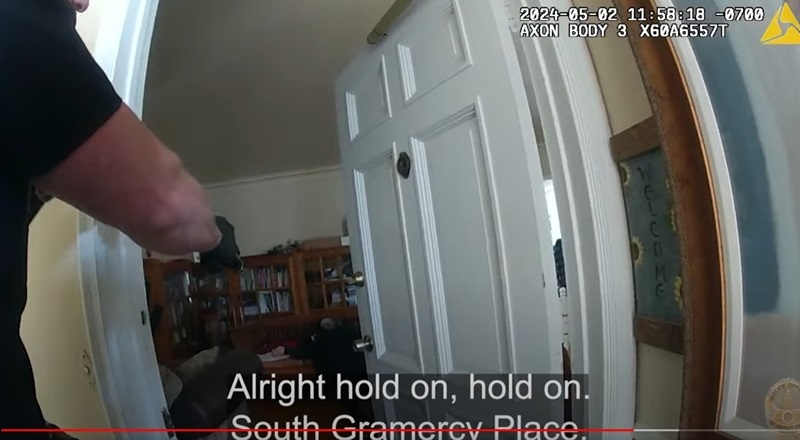The case of Yong Yang, a 40-year-old mentally ill Korean American who was shot dead by an armed Los Angeles Police Department (LAPD) officer, has raised questions about whether the initial response was appropriate.
While this incident underscores the need for a unified reporting system for people with mental illness, it also highlights serious problems with the initial response from mental health agencies and law enforcement.
First, unarmed specialized response teams, designed to prevent police from using force when dealing with the mentally ill, were not dispatched. The 911 call from a clinician at the Los Angeles County Department of Mental Health set the stage for this failure.

In the 911 recording, the Korean-American clinician from the Psychiatric Mobile Response Team (PMRT) said in a frantic voice, “He’s very violent, he’s trying to attack me and his father. Please help.” The 911 operator immediately called the police on a “Code 3” call based on this report. Code 3 signifies an emergency situation that allows police to activate their vehicle sirens.
In Los Angeles, the Systemwide Mental Assessment Response Team (SMART) is typically dispatched to violent situations involving patients with mental illness. These teams are made up of officers and mental health professionals trained to handle such cases. The fact that armed officers were sent to the scene instead of specialized teams needs to be re-examined to see if the reporting clinician’s requests were appropriate.
“The clinician probably faced my son for less than a minute,” said Yang’s father, Dr. Min Yang. “The clinician didn’t try to talk to him or do anything to alleviate his condition. My son just pushed me and said, ‘Get out,’ but that’s what he reported to 911.”
Preventing 911 operators from misunderstanding the situation, failing to dispatch the right response team, or involving law enforcement in situations that could be resolved differently are reasons why the policy analysis nonprofit LA Forward has called on the city to allocate additional funding for a unified mental health reporting system.
So far, the Department of Mental Health has remained silent on the case. On May 24, the Korea Daily reached out to the Korean-American clinician who called 911 regarding Yang’s case but was told that “it is not allowed to speak to the media” and has not received a response since.
The LA County government is also investigating whether the mental health department clinician’s response was appropriate. “We have asked the Department of Mental Health to conduct a detailed review to ensure all protocols were followed,” Supervisor Holly Mitchell said in a statement.
The incident demonstrates the unprofessional response to people with mental illness, particularly in the context of SMART’s limited staffing of specially trained officers. According to the LA Police Commission’s SMART report (as of 2023), there are only 68 SMART officers in the LAPD, which is less than 1% of all officers. This indicates a shortage of officers who can respond professionally to calls involving mentally ill individuals.
“When I watched all the body camera footage, it was clear that the officers were not trained to deal with the mentally ill and should have taken more time,” says psychiatrist Dr. Susan Chung. “Continuing to call the bipolar person, putting them under psychological pressure or fear, or provoking them by opening the door and saying ‘police’ is very misguided because it makes their condition worse.”
“The case of Yong Yang shows that the police have no concept or awareness of ‘patients,’” said Dr. Manchul Cho, a psychiatrist. “To offer arrest as an option to get the patient out of the house and to the parents for ‘trespassing’ is incomprehensible from a psychiatrist’s point of view, and shows the ignorance of the police, who do not even have a set policy for dealing with mentally ill people.”
Judy Mark, president of Disability Voices United (DVU), who has a son with autism, has trained officers on how to deal with people with mental illness. “You shouldn’t call the police when dealing with someone who is having a mental health crisis, they are not trained to do that,” she told The Sun on Sunday. “They shouldn’t point a gun at someone who is wielding a knife; they should be able to take a step back and come up with an alternative.”
BY YEOL JANG, HOONSIK WOO [jang.yeol@koreadaily.com]




